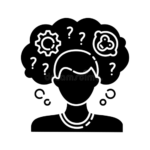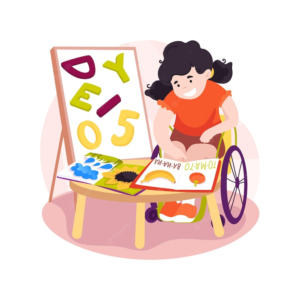
Intellectual Disability Adwait

Intellectual Disability Meaning
Understanding Intellectual Disability and Promoting Inclusion
Intellectual disability, also known as intellectual developmental disorder, is a condition characterized by significant limitations in intellectual functioning and adaptive behavior. Individuals with intellectual disabilities have unique strengths and challenges, and it is essential to foster an inclusive society that recognizes their abilities. This article aims to provide insight into intellectual disability, challenge misconceptions, and advocate for acceptance and support for individuals with intellectual disabilities.
Types of Intellectual Disability
Defining Intellectual Disability
Intellectual disability refers to a significant limitation in intellectual functioning, as measured by intelligence quotient (IQ) tests, and difficulties in adaptive behavior. These limitations manifest during the developmental period, impacting cognitive abilities, communication skills, social interactions, and daily life activities. It is important to note that intellectual disability is a diverse condition, with varying degrees of impairment and individual capabilities.
Dispelling Misconceptions
Intelligence is multifaceted:
Intelligence encompasses a wide range of abilities, and intellectual disability reflects limitations in specific areas rather than a lack of intelligence altogether. Individuals with intellectual disabilities possess unique strengths and talents that should be acknowledged and nurtured.
Not a reflection of character:
Intellectual disability is not indicative of a person’s character or worth. It is a neurological condition that affects cognitive functioning, but it does not define an individual’s personality, emotions, or potential for growth.
Understanding Challenges and Strengths
Intellectual Functioning:
Individuals with intellectual disabilities often experience challenges in areas such as reasoning, problem-solving, abstract thinking, and learning new information. However, their learning and processing styles differ, and they can excel in areas that align with their strengths and interests.
Adaptive Behavior:
Adaptive behavior encompasses practical skills required for independent functioning, such as self-care, social skills, communication, and the ability to navigate daily life activities. With appropriate support and accommodations, individuals with intellectual disabilities can develop these skills and lead fulfilling lives.
Promoting Acceptance and Inclusion
Person-Centered Approach:
Embracing a person-centered approach involves recognizing the individuality and inherent worth of each person with an intellectual disability. By focusing on their strengths, interests, and goals, we can empower individuals to achieve their full potential.
Inclusive Education:
Inclusive education is vital for promoting learning and social development. It involves adapting teaching methods, providing support services, and fostering peer interactions to ensure equal access to education for individuals with intellectual disabilities.
Supportive Environment:
Creating a supportive environment is crucial for individuals with intellectual disabilities to thrive. This includes providing clear communication, breaking down tasks into manageable steps, offering assistive technologies, and promoting a culture of acceptance and understanding.
Community Involvement:
Encouraging community involvement and social inclusion is essential for individuals with intellectual disabilities. It provides opportunities for meaningful relationships, recreational activities, vocational training, and employment options that celebrate their abilities.
Support Networks:
Establishing support networks for individuals with intellectual disabilities and their families is invaluable. These networks offer guidance, resources, and a sense of community, promoting the overall well-being of individuals with intellectual disabilities.
Conclusion : Intellectual Disability Adwait
Intellectual disability should never be a barrier to acceptance, support, and inclusion. By dispelling misconceptions, recognizing the unique strengths of individuals with intellectual disabilities, and fostering an inclusive society, we can create a world that celebrates their abilities and provides equal opportunities for them to lead fulfilling lives. Let us embrace diversity and create a society that values the inherent worth of all individuals, regardless of their intellectual abilities.
